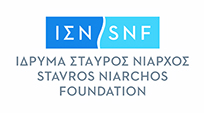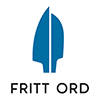Who are you guys?
Journalismfund Europe vzw is an independent non‐profit Intermediary established with the purpose of facilitating independent cross-border investigative journalism in Europe. We were founded in 1998 in Belgium, and are currently run by 10 people.
Find out more about our mission and vision here. Read all about our staff and board structure here.
What does Journalismfund Europe do?
1. Journalismfund Europe awards grants to professional journalists and journalistic organisations. We have created an overview of all grants for you. At the same time you can find all the info on the application platform.
2. Journalismfund Europe organises and facilitates training programmes, like mentoring of grant recipients, online webinars and a postgraduate International Research Journalism programme.
3. Journalismfund Europe facilitates networking and knowledge sharing, e.g. through its public international journalists’ database.
4. Journalismfund Europe decided to be more proactive in propelling, stimulating and facilitating diversity in the media landscape. The best way to do that was by setting up an incubator through which we can offer support to innovative journalistic initiatives.
Is Journalismfund Europe a governmental institution?
No. Journalismfund Europe is an independent non‐profit intermediary. It was established in 1998 by citizens with the purpose of stimulating investigative cross-border journalism in Europe.
You can read our history here and the Articles of Association here.
Journalismfund Europe is an intermediary and firewall between donors and journalists. This intermediary role is essential to enable donors to finance investigative journalism without affecting the credibility and independence of the journalists. For Journalismfund Europe, its firewall function lies at the core of its identity. Ultimately, Journalismfund Europe only works in the interest of the general public, by enabling a well-informed debate as a condition for citizens to shape a democratic society.
Where does the money of Journalismfund come from?
From different sources. Currently from the Flemish Government, the European Commission and several international foundations.
Journalismfund’s fundraising is conducted according to the following key principles: full transparency, independence and no editorial interference.
Journalismfund’s financial records are reviewed annually by an independent auditor.
You can find all funding information and financial documents here.
Why does Journalismfund Europe promotes cross-border journalism?
Cross-border collaboration is more important than ever in investigative journalism to explore possible solutions to increasingly complex and global problems such as climate change, migration, financial malpractices, urban development and social injustice. Also local problems often have an international dimension. It can have a greater impact on your stories, reach a larger and wider audience and create a bigger network. By collaborating with journalists on the ground, you learn from each other and fruitful partnerships can emerge. Moreover, you can reduce your carbon footprint. Why travel when you can collaborate with a journalist from another country who has the know-how and knowledge?
What is a grant?
A grant can be defined as an award of financial assistance in the form of money by a grantor (government or other organisation) to an eligible grantee for a specific purpose or project.
A grant agreement is a legal instrument of financial assistance between a grantor and a grantee (individual, organisation) that is used to enter in a relationship the principal purpose, which is to transfer money to the grantee to carry out a specific purpose or project, and not to acquire services for the grantor’s direct benefit or use. In other words, the intention of the grantor is uninterested. Grants are however conditional upon certain qualifications as to the use and the maintenance of specified standards, and the grantee is accountable for the use of the funds provided. Consequently, some level of compliance and reporting by the grantee is required.
How can Journalismfund Europe safeguard its independence?
All formal agreements between Journalismfund Europe and its donors stipulate independence and no editorial interference. (Representatives from) donors can never be part of the juries that award the grants. Journalismfund Euroe does not take money from donors that don’t agree with these terms.
We adopted an Ethical Funding Policy to ensure that Journalismfund Europe vzw properly manages its priorities and projects with appropriate independence from its funders. This Policy also aims at providing transparency regarding the identity of Journalismfund’s sources of funding to avoid any suspicion of inappropriate influence or conflicts of interest concerning Journalismfund’s activities. Find our Ethical Funding Policy here.
- The funder nor any other party will be involved in the grant allocation process.
- The jury decides upon the applications in full autonomy. The jury consists of respected investigative journalism experts from across Europe.
The jury members remain anonymous until they leave the jury. This is to safeguard both the independence of the jury process and the confidentiality of the investigations. (But also to reduce risks.) After their mandate is finished, the names of the jury members are made public by Journalismfund Europe.
The jury members are chosen by Journalismfund, without involvement of donors or any other parties. Jury members are selected from a longlist that is approved by Journalismfund.eu’s board. This means that only selected staff members of Journalismfund Europe know who are the jury members.
Both Journalismfund and the jury are bound to strict confidentiality – before, during and after evaluation of the proposals.
Jury members are bound to Journalismfund's strict conflict of interest policy, which is designed to assure the highest standards in terms of ethical conduct and to ensure the independence and objectivity of decision making. - The grant programmes are only open for professional journalists and news outlets with a proven track record. The grantees and all other persons involved in the granted investigations have to endorse the principles of the Global Charter of Ethics for Journalists as well as the national codes of ethics that are in force (i.a. Truth & Accuracy, Independence, Fairness and Impartiality, Humanity and Accountability). This condition is included in the grant agreements that Journalismfund Europe concludes with every grantee.
- The topics and content of the applications for investigative journalistic projects remain confidential until after publication, which prevents self-censorship. (And again to reduce risks.)
- The grant programmes do not set an agenda: the applying journalistic teams choose the topics themselves, bottom-up. Nevertheless, Journalismfund.eu is open to topics that the United Nations has established as the global Sustainable Development Agenda for 2030 (SDGs - Sustainable Development Goals).
There are 17 objectives and 169 underlying targets. A donor who wants to help realise one or more of these objectives can approach Journalismfund. The targets are broad enough (fighting poverty and famine, health, education, gender equality, sustainable management of water and energy, industry, innovation, etc.) so as not to jeopardise the independence of journalistic choices.
At the same time, Journalismfund Europe strives to provide sufficient resources for topics that fall outside the SDGs (although you can accommodate most of the investigative journalism projects that we have supported over the past 20 years with those SDGs). - The formal grant agreement that Journalismfund.eu will sign with every supported journalist and/or media outlet, will explicitly confirm that Journalismfund Europe cannot interfere in editorial decisions, that the editorial responsibility lies solely with the grantee and the media where the journalistic products are published, and that Journalismfund Europe will have no influence on the content, presentation or editorial process.
Who decides about the grants?
All Journalismfund’s grant programmes work with independent juries that decide autonomously about the allocation of the grant budgets, based on the official grant rules and the submitted applications.
The juries consist of four experienced personalities knowledgeable in the field of journalism and media. Membership is rotating and anonymous. Once they step out of the jury the names of the jury members are made public.
You can find an overview of previous jury members here.
How can I find a teammate?
You're interested in applying for one of our cross-border grant programmes, but you don't have a cross-border teammate yet to collaborate with?
You can find useful tips on how to find a suitable teammate on this page.
Tips on how to set up a cross-border investigation
- Read the Manual for Investigative journalism (it is available in 13 languages, maybe also in your native one)
- Consult the Investigative journalism manual (available in several languages)
- Watch the recording of establishing cross-continental cooperation webinar
- Discuss how you work together, step by step, including deadlines, crediting each other, organising meetings, keeping minutes, sharing data, etc. You could sign for this purpose Memorandum of Understanding (find here more ideas for MoU for cross-border teams of freelancers), a partnership agreement, or just hold a meeting and put everything in minutes to refer to.
- Consider signing non-disclosure agreements
- Determining honorariums for the team, check out the proposal for Collective Bargaining system by Ruona Meyer)
- Look into How to make collaboration work
- Last but not least, see the very informative GIJN Resource Center on setting up an investigation
- Do not forget about Freedom of Expression
I have another question. How can I get in touch with you?
Don't hesitate to write or call us.
Please find all our contact details here.









